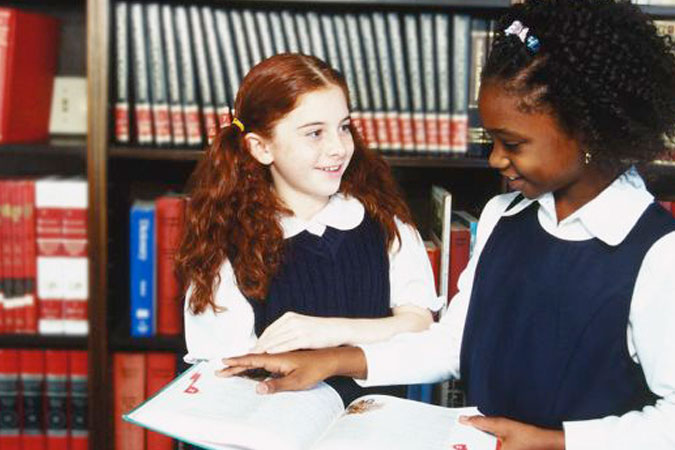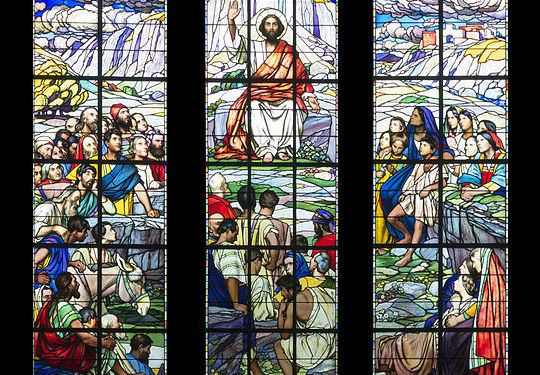
A few weeks ago, I shared some tips on how to shine the spotlight on those we teach by shifting the focus away from ourselves. As you continue to practice ways of requiring students to take responsibility for their learning, here’s an idea that helps, called the Paired Interview.
If you have a rather large chunk of text to cover in your textbook, divide the class into two groups and have group one read independently a part of the text and group two read independently the other part of the text. Put a time limit on the reading of the text. (Always give less time then is really needed to create a sense of urgency.)
Then, pair up students, one from each group, and have them take turns interviewing one another about what they read. Have the interviewers ask questions such as:
- Explain in a few sentences the main idea of your text.
- What is one quote (sentence) from your text that you would put on a poster to inspire a group?
- What are some specific things your text helped you to learn or realize about the Catholic faith?
- Based on your reading, name some specific things we, as Catholics, need to know, do, or believe in order to live as followers of Jesus.
These questions can be written on the board, or you can create an interview sheet. Adjust the questions to fit your grade level. Again, set a time limit for each interview: three to five minutes for each interview. Each student should record the answers to the questions that her or his partner provides. As all this is going on, walk about, keeping students on task and announcing how much time they have.
When they are finished interviewing, call on some students to report on what their partner learned from the reading. Take notes on the board about important concepts they touch on. Then fill in the cracks, so to speak, about anything they missed, and elaborate on key concepts.
The result is that the material is covered, but the spotlight is on the students, who do most of the work while you facilitate. In the academic world, this is referred to as cooperative learning, and by the intermediate grades, kids are accustomed to such activities in their school classes. Of all classes to have students cooperating in their learning, it would seem most appropriate for faith formation!
Lessons in God’s Gift: Reconciliation and Eucharist are explored through reading, conversation, prayer, and fun-filled activities that appeal to all learning styles.





Be the first to comment